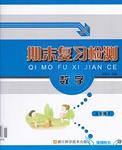题目内容
WHAT happens to a teenage kid when the world he thought he knew suddenly changes? Find out in Little Brother by American author Cory Doctorow. It is a fascinating book for a new generation of sci-fi readers.
Marcus Yallow, 17, from San Francisco is much more comfortable in front of a computer than obeying the rules of society. Smart, fast and wise to the ways of the networked world, he has no trouble outwitting (骗过) his high school's monitoring system. This way he and his friends get to head off to play a popular online game in real life.
While they are playing, a bomb explodes on the Bay Bridge. Marcus stops a military vehicle to get help for his injured friend, but this simple act throws him into a Department of Homeland Security (DHS) secret prison. There he is treated as a possible terrorist. He is eventually let go after four days, but his injured friend disappears.
When he returns, Marcus discovers that there are many "security measures" in place and that now all citizens are treated like potential terrorists. While some consider this government action necessary for public safety, Marcus sees this as a complete destruction of the rights he is supposed to have as a citizen.
He knows that no one will believe his story, which leaves him with only one thing to do: to take down the DHS himself. He helps organize a large network called Xnet to spread the truth, anonymously (匿名地).
The book presents a young man who is irresponsible, but learns about himself, and grows, in the course of the story. As part of this learning and growing he becomes aware of very serious issues about his society.
【小题1】 What kind of article does this passage belong to?
| A.A fascinating story. | B.A book review. |
| C.News report | D.A TV programme |
| A.damage | B.reward | C.ruin | D.protection |
| A.he killed his friend |
| B.he bombed a military vehicle |
| C.he did something that a possible terrorist could do |
| D.his injured friend disappeared |
| A.Marcus Yallow is much more comfortable obeying the rules of society |
| B.Marcus Yallow is smart, fast and wise in real life |
| C.Marcus Yallow always plays online games in real life |
| D.Marcus Yallow is expert at the network world |
| A.is supposed to be more irresponsible |
| B.becomes aware of very serious issues about his society |
| C.presents a young man who is irresponsible |
| D.plays a popular online game in real life |
【小题1】B【小题1】C【小题1】C【小题1】D【小题1】B
解析

 品学双优卷系列答案
品学双优卷系列答案 小学期末冲刺100分系列答案
小学期末冲刺100分系列答案 期末复习检测系列答案
期末复习检测系列答案